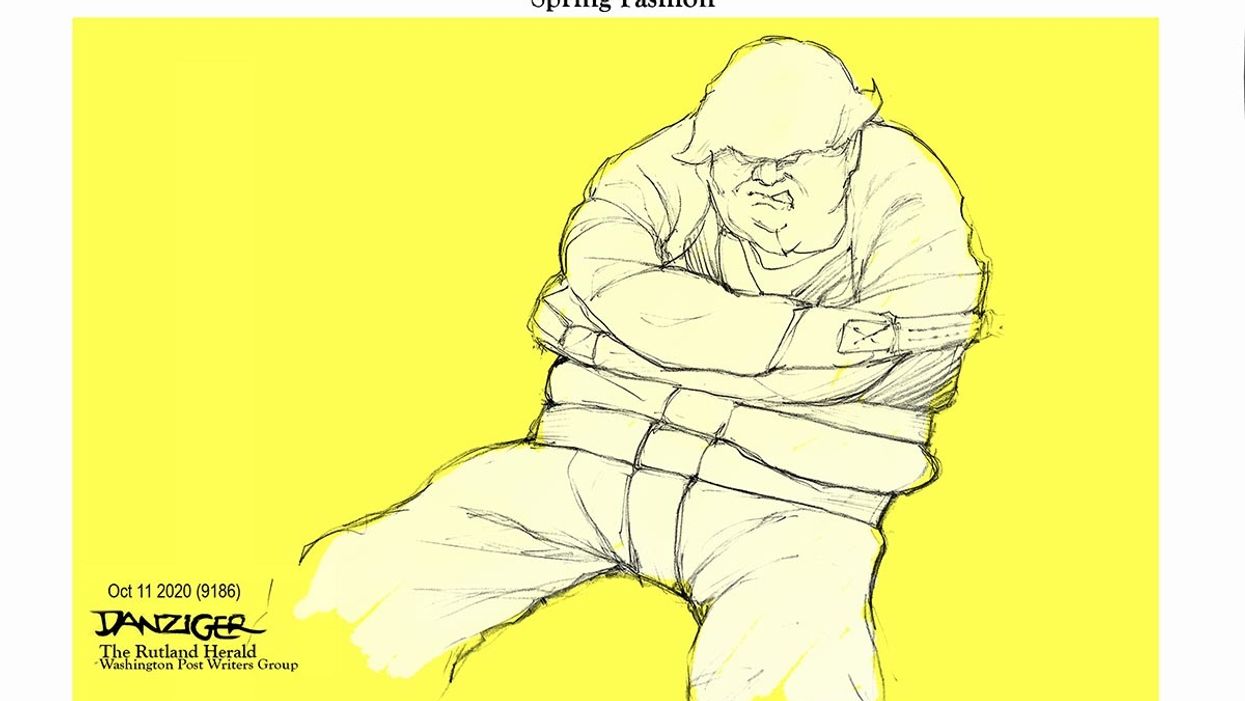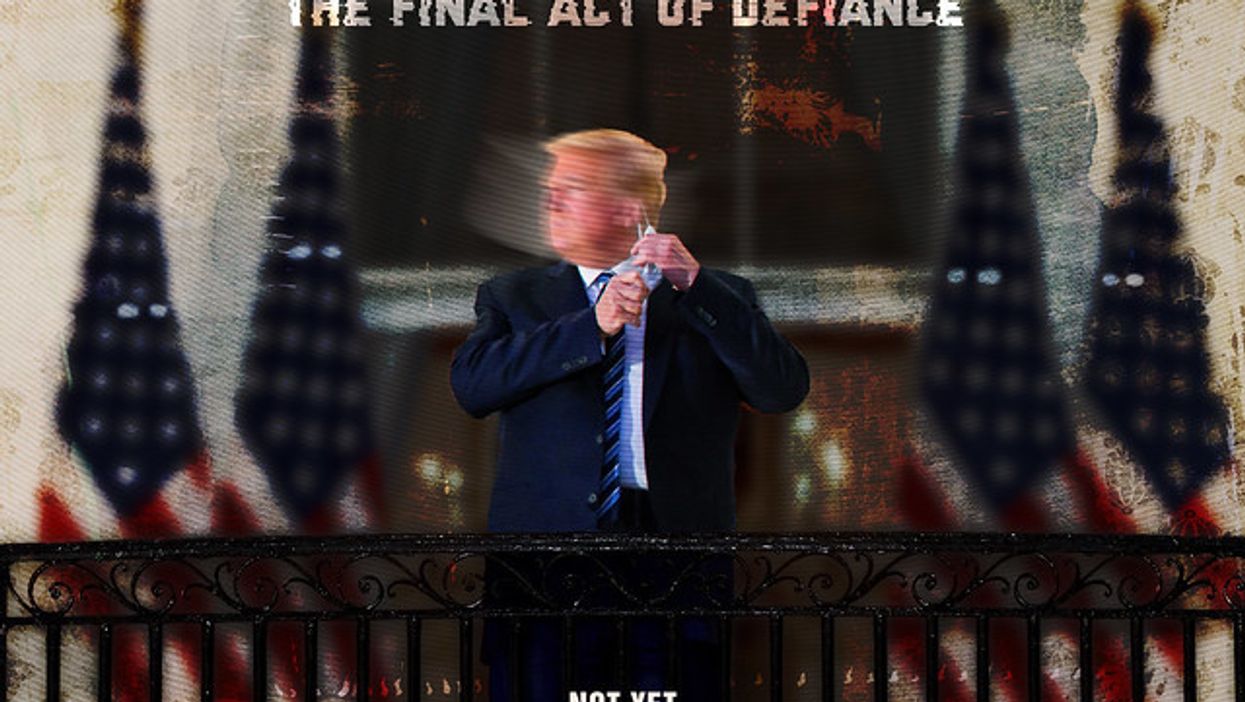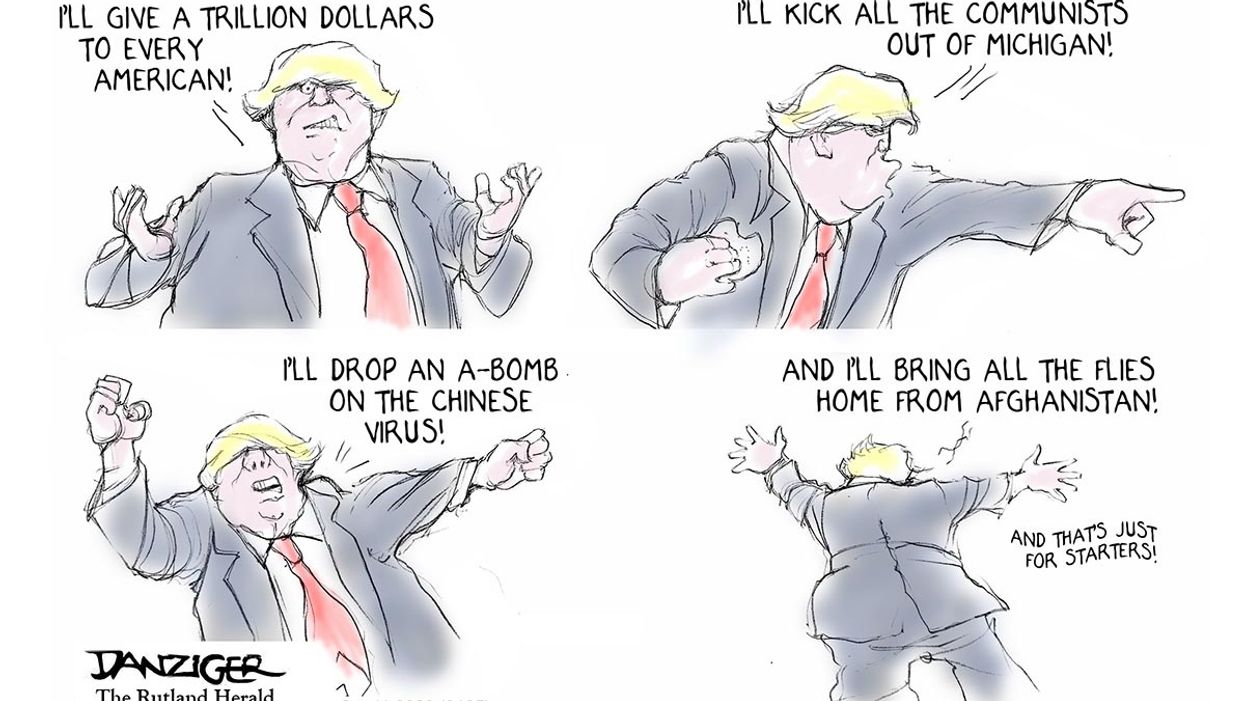What he did not have to do is endure the recklessness of a boss who willfully and deliberately exposed him to a deadly virus in the name of politics.
But others very much like him do.
As those in President Donald Trump's inner circle fall to the virus one by one in what can only be called the Trump cluster, my thoughts have turned to my dad and all those butlers, waiters, drivers, housekeepers and other staffers who work in the White House, who serve this president and his family, the power differential a yawning gulf. Most have worked for presidents of both parties and many are older or minorities, groups most vulnerable to a foe for which there is no vaccine yet.
Now, several of those workers, including the president's valet, have tested positive.
Appearing 'strong'
There are precautions that scientists and doctors, including Trump's own CDC director, Dr. Robert Redfield, have said work. But everyone saw a contagious and wheezing Trump walk up the White House stairs, and rip off his mask before posing for a balcony photo op.
The president who, most of all, wants to appear strong, never looked weaker. And when he twirled around and marched into the people's White House — putting so many at risk — well, as a horror movie trope might have described it, the monster was inside the house.
Does the man who insisted his name be stamped on every stimulus check want Americans to plead for him to take the pandemic seriously? Chin up and mask off, defiant on that Truman balcony, he certainly looked like no amount of attention could ever fill a bottomless pit of need, though it's obvious now that trying is the only thing that matters to him.
If Trump won't listen to experts who promote mask-wearing and social distancing, and would compel Secret Service members to accompany him on a car ride when he should have been quarantined, you know he would never heed the concerns of the person who brings him dinner or turns down his bed.
"Don't be afraid of Covid," he tweets, then instructs Republican legislators to withhold any hope of a compromise that would move relief funds to communities and businesses and Americans living on the edge. Then he changes his mind about that, maybe. The U.S. coronavirus death count is 210,000 and rising. Common sense says we should all be afraid, especially since the man at the top is ignoring his most essential duty, keeping Americans safe and well.
That word "essential" has taken on a new meaning since COVID-19 struck, and it's now applied to Americans very much like my dad, those doing the work you may not notice but certainly need: bus drivers, food delivery workers, store clerks and the like.
Doctors and nurses who begged for protective gear, some of whom resorted to fashioning their own out of plastic garbage bags, would have loved to get masks very much like the one Trump tossed aside and his careless family refused to wear when prompted by Cleveland Clinic staff during the first presidential debate.
Vice President Mike Pence, the head of the coronavirus task force who should know better, grumbled about a divider that debate organizers decided to erect for Wednesday's faceoff with his Democratic challenger, Sen. Kamala Harris. He was following his boss, as usual, in pooh-poohing the danger and the facts: COVID-19 numbers are rising, with minority Americans most at risk. Besides having many of the jobs that make working from home impossible, there are other cracks and inequities in the systems that support these Americans' health care, educational stability and economic and housing security.
No stepping up
A true leader would see this as a challenge and a wake-up call. America's leader, and those who follow his lead up to and including his own behavior during a pandemic, still wish it would go away. The administration isn't diligent about contact tracing for supporters who attended Trump's superspreader events, and the president has already derided blue-state victims. Imagine how much he cares about the fate of those he may not see, those essential, and sadly, it would seem, "expendable" Americans.
When my dad would return home very late and very exhausted, he would loosen his tie, open that top shirt button, pour a glass of scotch and unwind. He would entertain us with stories of what went on in those rooms, filled with the privileged. They probably never noticed him, but he took it all in. (When a 2012 tape leaked of GOP presidential nominee Mitt Romney dismissively saying that "47 percent" of Americans were "dependent on the government" and "believe they are victims," I knew right away that the culprit was an "invisible" service worker. Yes, the bartender did it.)
Every one of those men and women who silently serve Trump and his staffers, once infected, could get terribly sick or take the virus home to family members; they have wives, husbands, sons and daughters like me, listening to their stories as I once sat hanging on to my father's every word. Not one could expect the blue-ribbon treatment and experimental therapies Trump has bragged about.
There is a lesson that a president laid low could learn — an "essential" lesson.
It's both sad and infuriating to realize this president never will, and all Americans will suffer.
Mary C. Curtis has worked at The New York Times, The Baltimore Sun, The Charlotte Observer, as national correspondent for Politics Daily, and is a senior facilitator with The OpEd Project. Follow her on Twitter @mcurtisnc3.
CQ Roll Call's newest podcast, "Equal Time with Mary C Curtis," examines policy and politics through the lens of social justice. Please subscribe on Apple, Spotify or wherever you get your podcasts.












